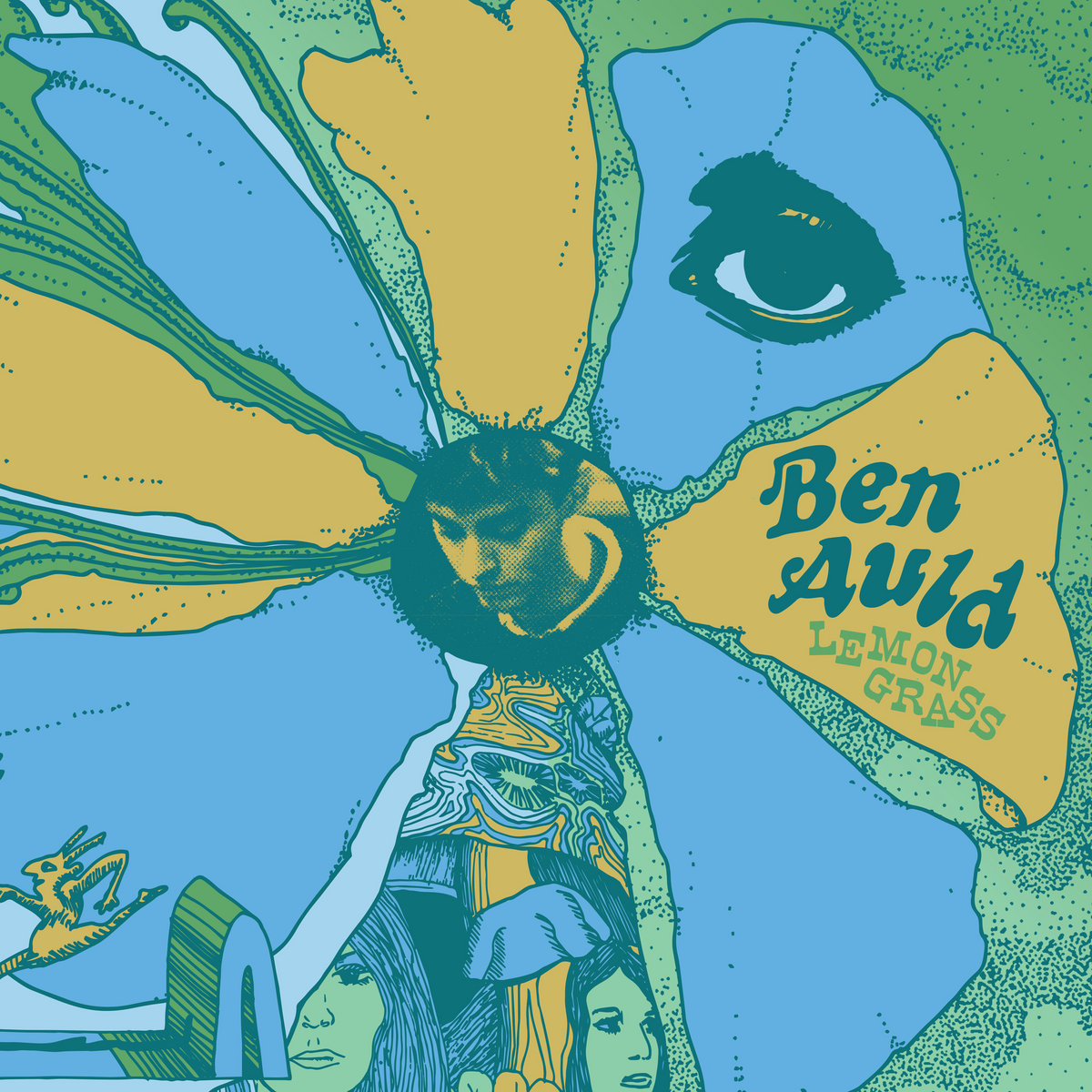Like many other musicians, Ben Auld began by simply doing things himself. “I started out doing it this way because I had no other options and once I’d made a couple songs it was like ‘I guess I can do this by myself and in my own time’ so I just carried on that way,” he explains of his recording process. His debut album Lemongrass – a short collection of sweet and shiny bedroom pop that gleams with 60s/70s brightness – gathers together sessions he recorded on four- and eight-track recorders at his apartment, his parents’ house in Norwich, and at the snug Canyon Sound Studio. The result is an upbeat little record that manages to sweep between feeling homely and charmingly lonesome to also feeling like it has had the benefit of professional eyes look over it.
Lemongrass then is a testament to Auld’s compositional skill. The album is full of modestly colourful layers, never veering into territory too psychedelic, but rarely leaving a moment monochromatic. His deft guitar playing anchors his songs, Auld weaving multiple layers of melody and harmony on pretty much every track here. “D4A” has a softly jubilant bounce, acoustic notes weaving together like embroidered threads. Even on the brief title track (which feels like the most unadorned thing here) the closely recorded guitar notes are still unceremoniously layered up; even when his arrangements aren’t overtly busy, they still feel anything but bare.
Capturing the jangle of The Beatles or an echo of early, sugary of Montreal, Auld offers what feels like short snippets of lovelorn hope. Moments captured on breezy summer afternoons where hands might have brushed against each other, where wandering eyes might have caught his glance, and when wordless affirmations were uttered. “I gave you a playlist that I made,” he remembers on “D4A” whereas on “Our Time Is Now” he’s asking “for time by your side.” On “Lemongrass” he’s simply reminiscing over time spent reading on a porch together. He cautiously concludes amidst the chirpy, tinny guitars of “You’re A Ghost”, “You’re a ghost that’s never going to quit haunting my mind.” These moments linger in his head to replay at his leisure. In perhaps the album’s loveliest sentiment Auld ponders, “Oh how I wish I could have saved these moments up / And watched them on a bonus disc / Re-release of us,” capturing a bereft moment while also making it relatable and wholesome.
While it’s hard to explicitly fault any track on Lemongrass, its effect as a short whole is what sticks with you as opposed to individual moments. Across 25 minutes he never really puts a foot wrong, but equally never makes what feels like a strong statement that will be remembered in months to come. Lemongrass is a honeyed, breezy listen that you won’t ever be inclined to turn off when it’s playing, but would equally be hard pressed to remember specific moments from. All of Auld’s nimble guitar playing, swaying and blocky piano chords, and summery conjuring bleeds into one another, leaving for an appetizing little meal, but not much to individually snack on.
There are a couple of exceptions, but they only just climb out of the rest. When the drums enter on “Worry All The Time” it feels like the track is suddenly being cast in full technicolour. However, even though it’s the fullest track here, it still feels all too fleeting. The final duo of tracks stand out better, “International Space Station” for its playful balladeering rhymes alongside the contrastingly bleak outlook (“I’ll wave to you while I’m fading from view”), and “Daisy'”s warm, optimistic ending note (complete with a sweetly sultry saxophone sendoff, courtesy of Nicholas Dover in the album’s only collaborative instance). These are the moments that might stick with you specifically in the days after listening. But mostly you’ll remember that brief 25 minutes you spent in Auld’s company being the bright, heartfelt arrangements of a man getting on with making little musical moments by and for himself.

